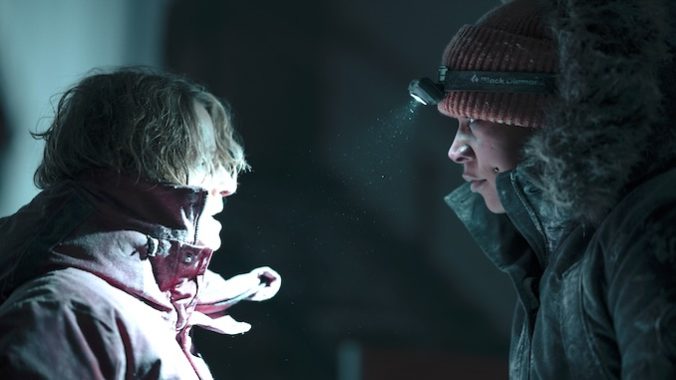True Detective: Night Country Shambles to a Disappointing End
Photo Courtesy of HBO

I like my True Detective existentially challenging, emotionally bleak, and dark as a black hole, thank you very much. Unfortunately for me, new showrunner Issa Lopez’s latest installment in the series, Night Country, is only one of those things (the clue is in the title), and even that comes from its moody and icy setting rather than its characters or plot. Despite the unanimously glowing reviews from critics, a big chunk of viewers have shared the same frustration I have throughout its six-episode season: why is this such a plodding slog? Well, I’m here attempting to crack that question with some very subjective answers.
On paper, True Detective: Night Country seemed like the right step to revive an anthology show that was on hiatus for five years: an unconventional female-led cast placed in a small Alaskan town, investigating an eerie case that shows signs of some supernatural force lurking in the shadows. And the task to solve it fell on Liz Danvers (Jodie Foster) and Evangeline Navarro (Kali Reis), two detectives with a violent history who can’t stand each other. Lopez admittedly envisioned this partnership (and story) as a mirror image of Season 1’s star duo, but her execution failed to capture the essence of what made original creator Nic Pizzolatto’s vision so magnetically captivating 10 years ago.
At its core, True Detective has always been more about character than plot. Night Country is neither and both at the same time. Similarly to Rust and Marty in the debut season, Danvers and Navarro are stubborn, obsessive cops living by their own rules and principles. As opposed to those two, however, they’re never actually intriguing. Their vague chemistry is artificial and emphatic, and their pseudo-toughness comes across as manufactured assholery with nothing truly substantive to base it on. Lopez seems to think that if they say “fuck you” at least 10 times in every episode and act like brutish, self-absorbed men, they’ll earn our respect, if not our sympathy. But that’s not how it works. Without redeeming qualities and inherent vulnerability, there’s no connection to be made; instead, we begin to resent nearly every word that comes out of their mouths, so Danvers and Navarro never really become more than fictional characters on the page.
This mainly comes down to the flat and uninspired dialogue Night Country is riddled with. Even the most hated (and underrated) True Detective season offered thought-provoking arguments and snappy remarks (if nothing else) with a specific edge and flavor to them. But Season 4 drowns itself in blatantly one-dimensional conversations that sound immature and dire, which is a shame because the protagonists aren’t awful characters—they’re just underdeveloped with a limited vocabulary that prevents them from fully realizing their potential.
Danvers and Navarro can’t stop expressing how angry and bitter they are throughout (which we already know after spending 10 minutes with them), and that precludes them from saying anything surprising or profound. It’s bare-bones screenwriting with no subtlety or rhythm. A perfect example of that is the car ride scene in Episode 3, perhaps the first time the two let their guards down and open up to each other.
As the two are trapped in that enclosed space—the perfect location to finally connect—they share an awkward and stilted conversation. After going back and forth about Tinder and lonely-night habits, it finally starts getting interesting: Navarro admits that she prays when she’s lonely, to which Danvers laughs, “You pray? What do you mean, like, get on your knees, ‘Our Father who art in heaven,’ pray? Oh, come on, you kiddin’ me? You talk to God?” Navarro answers: “No, I listen,” before the scene abruptly ends just when it feels like they are actually getting somewhere.
-

-

-

-

-

-

-

-

-

-

-

-

-

-

-

-

-

-

-

-

-

-

-

-

-

-

-

-

-

-

-

-

-

-

-

-

-

-

-

-








































